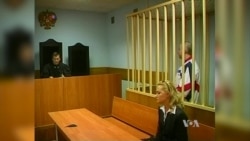British Home Secretary Amber Rudd his holding a meeting of the government's Cobra emergency response committee Wednesday to get an update on the mysterious illness of a former Russian double agent.
British counter-terror police are leading the investigation, and the country's military research lab is working to determine the substance involved.
Sergei Skripal and his daughter were found collapsed in their home town in southern England Sunday, showing symptoms of poisoning.
WATCH: Britain response
Skripal, a former Russian agent and army colonel, confessed to sharing information on Russian spies in Europe with British intelligence agencies, in return for $100,000. A Moscow court sentenced him to 13 years in jail in 2006. He was released as part of a spy swap with the United States in 2010 and settled in Britain.
Last Sunday, he and his daughter, Yulia, were found collapsed on a park bench in the southern city of Salisbury. Jamie Paine, who called emergency services, told reporters that the pair appeared severely ill.
"Her eyes were just completely white. They were wide open, but just white and frothing at the mouth. Then the man went stiff. His arms stopped moving, but he's still looking dead straight," Paine said.
Investigators have sealed off locations that Skripal and his daughter are believed to have visited Sunday, and are reportedly examining security video, which shows a man and a woman walking close to the scene.
The British government said it is keeping an open mind about the investigation. But with suspicions growing of Russian involvement, Foreign Secretary Boris Johnson offered this warning Tuesday:
"Should evidence emerge that implies state responsibility, then Her Majesty's Government will respond appropriately and robustly. I think we will have to have a serious conversation about our engagement with Russia, and for my own part, I think it will be very difficult to see how we can. I'm thinking ahead to the (Soccer) World Cup this July, this summer. I think it would be very difficult to imagine that U.K. representation at that event could go ahead in the normal way, and we would certainly have to consider that."
The case has disturbing echoes of the killing of former spy Alexander Litvinenko in 2006, who was poisoned when he drank tea contaminated with radioactive polonium after meeting Russian agents in a London restaurant. A British inquiry concluded that Russian President Vladimir Putin had probably ordered his assassination.
"In a sense, the one act that solidified the image in the Western mind that Putin’s Russia was, or is, a rogue state was the assassination of Alexander Litvinenko in 2006. That a similar incident — or that parallels are being drawn between that and Sunday’s incident only 12 days before the Russian presidential election — does reflect badly on Putin, at least in the international community," said Andrew Foxall, director of the Russia Studies Center, at the London-based Henry Jackson Society analyst group.
He added that Britain would look to coordinate any diplomatic sanctions with allies in Europe and the United States, but it also has unilateral leverage.
"Given the sheer amounts of money — Russian money that are in the city of London. Given the number of Putin cronies that have invested in London, that have houses here, whose wives and girlfriends are based here, whose children go to school here. So, there are things that the U.K. can do unilaterally that would send an important message to President Putin."
Russia has denied involvement, and said it is willing to cooperate in the investigation.
Sergei and Yulia Skripal remain in critical condition in the hospital under armed guard, while authorities are urgently trying to determine what substance caused them to become so violently ill.








